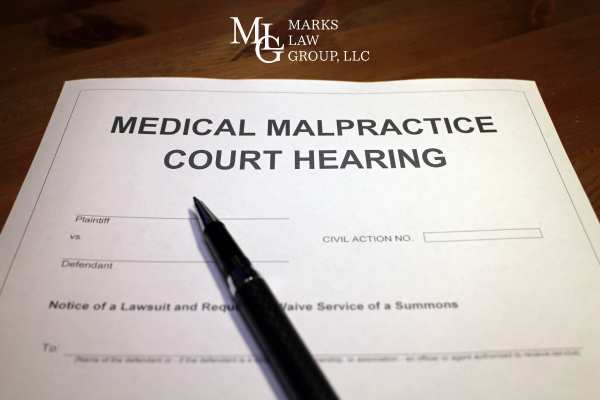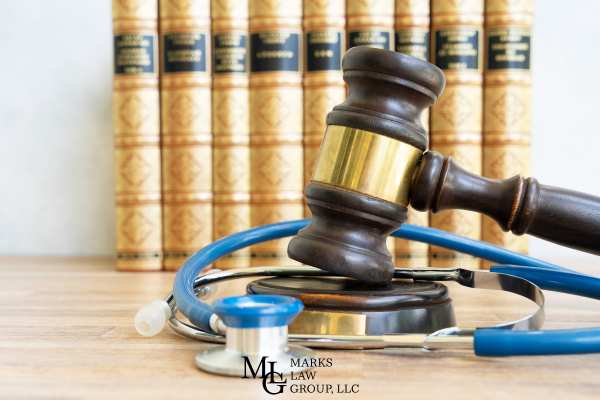Medical malpractice can tragically result in wrongful death, leaving families devastated and seeking justice. When a healthcare provider’s negligence leads to the loss of a loved one, it’s essential to hold them accountable. Wrongful death claims involving medical malpractice require proving that the provider's actions fell below the standard of care, causing fatal harm. These cases are often complex, involving detailed medical records and expert testimony to establish liability.
If you’ve lost a loved one due to medical malpractice, pursuing a wrongful death claim can help provide closure and financial compensation. Contact an experienced wrongful death attorney in Decatur today at 678-251-9309 to explore your legal options and get the support you need during this difficult time.
Can I File a Wrongful Death Claim if My Loved One Died During Surgery?
Yes, you can file a wrongful death claim in Georgia if your loved one died during surgery, but there are specific factors to consider. To pursue a successful wrongful death claim, you must prove that the death resulted from medical negligence or malpractice during the surgery. This could include errors made by the surgeon, anesthesiologist, or other medical staff, or issues related to improper pre-surgery care, failure to monitor the patient, or post-surgery complications that were mishandled.
In these cases, it’s essential to establish that the healthcare professionals involved failed to meet the accepted standard of care, directly leading to your loved one’s death. Working with a wrongful death attorney experienced in medical malpractice can help you navigate the complexities of these cases, gather the necessary evidence, and pursue compensation for your loss.
Common Types of Medical Malpractice Leading to Wrongful Death
Medical malpractice can have devastating consequences, including the wrongful death of a patient. Several types of medical errors can lead to such tragic outcomes, each reflecting different failures in the standard of care. Here are some of the most common types:

- Surgical Errors: Mistakes during surgery can be fatal. Errors like operating on the wrong site, leaving surgical instruments inside the body, or causing unintended damage to organs or tissues can lead to serious complications and even death. Failure to monitor a patient properly during or after surgery can also result in wrongful death.
- Medication Errors: Administering the wrong medication, incorrect dosages, or harmful drug interactions can be deadly. In some cases, failing to provide life-saving medications in a timely manner can also be considered malpractice. These errors often stem from miscommunication or negligence in prescribing, dispensing, or administering drugs.
- Failure to Diagnose or Misdiagnosis: Failing to diagnose a serious condition like cancer, heart disease, or stroke in time can lead to death. Misdiagnosing a condition and treating it improperly can have the same devastating result. These errors occur when medical professionals overlook key symptoms, fail to order necessary tests, or misinterpret test results.
- Anesthesia Errors: Anesthesia requires careful administration and monitoring. Errors in dosage or failing to properly monitor a patient’s vital signs during a procedure can lead to fatal complications, including oxygen deprivation or adverse reactions to anesthesia.
- Birth Injuries: Negligence during labor and delivery can result in fatal injuries to both the mother and child. This may involve failing to perform an emergency C-section when necessary, improper use of delivery instruments, or failing to address complications like fetal distress.
In cases where medical negligence leads to wrongful death, families may be entitled to seek compensation for their loss. Understanding the common causes of malpractice can help victims and their loved ones recognize when legal action may be warranted.
Proving a Medical Malpractice Wrongful Death Claim
Proving a wrongful death claim due to medical malpractice can be complex. To succeed, the claimant must establish several key elements that demonstrate the healthcare provider's negligence directly caused the patient’s death. Here's what needs to be proven in such cases:
- Duty of Care: The first step is establishing that the healthcare provider owed a duty of care to the deceased. This means showing that there was a doctor-patient relationship, where the medical professional was responsible for providing care according to accepted medical standards.
- Breach of Duty: Next, it must be proven that the healthcare provider breached their duty of care. This involves demonstrating that the provider failed to act as a reasonably competent professional would under similar circumstances. Expert testimony is often required to establish what the standard of care should have been and how it was violated.
- Causation: One of the most challenging aspects of a wrongful death claim is proving causation. The claimant must show that the breach of duty directly caused the patient's death. This can be difficult, especially if the deceased was already suffering from a serious medical condition. The key is proving that the provider’s negligence was the primary cause of death, not just a contributing factor.
- Damages: Finally, the claimant must show that the wrongful death resulted in measurable damages. This could include funeral expenses, medical bills, lost income, and the emotional impact on surviving family members. These damages are compensable through a wrongful death lawsuit.
Gathering evidence, securing expert witnesses, and building a strong case are essential steps in proving a wrongful death claim from medical malpractice. Families dealing with such tragic losses often benefit from working with an experienced attorney who understands the legal and medical complexities involved.
Damages in a Medical Malpractice Wrongful Death Claim
Damages in a medical malpractice wrongful death claim aim to compensate surviving family members for the financial and emotional impact of their loved one’s death. While no amount of money can replace a life, the legal system recognizes the need to address the economic and non-economic losses that result from medical negligence. There are two main types of damages: economic and non-economic.
Economic Damages
Economic damages are intended to cover the tangible financial losses that occur due to wrongful death. These typically include:

- Medical Expenses: Costs incurred for the deceased’s treatment before their passing, including hospital bills, medications, and other healthcare expenses.
- Funeral and Burial Costs: Compensation for the expenses associated with funeral services, cremation, or burial.
- Lost Income and Benefits: If the deceased was a source of financial support, their family can seek compensation for the loss of future earnings and benefits. This includes the wages the deceased would have earned had they lived.
Non-Economic Damages
Non-economic damages are more subjective and compensate for the emotional and psychological impact of losing a loved one. These include:
- Loss of Companionship: Compensation for the loss of love, affection, guidance, and support that the deceased provided to their family.
- Pain and Suffering: Surviving family members may be entitled to damages for their emotional suffering and grief. In some cases, compensation may also be available for the pain the deceased experienced before their death.
The specific damages available in a wrongful death claim can vary based on state laws and the circumstances of the case. Consulting with a Decatur medical malpractice attorney experienced in wrongful death claims can help families navigate the process and pursue the compensation they deserve.
How Long Do I Have to File a Medical Malpractice Wrongful Death Claim?
In Georgia, you generally have two years from the date of your loved one’s death to file a medical malpractice wrongful death claim. This time limit is set by Georgia's statute of limitations for wrongful death cases. However, there are some exceptions that could affect this deadline.
For example, if the malpractice was not discovered immediately, you might have additional time under the "discovery rule." But even in those cases, Georgia law imposes an absolute deadline, known as the statute of repose, which bars any medical malpractice claims from being filed more than five years after the date of the negligent act, regardless of when it was discovered.
It's crucial to consult with an attorney as soon as possible to ensure that your claim is filed within the applicable time limits. Missing the deadline can prevent you from pursuing compensation for your loss.
Can I File a Claim if the Deceased Was Elderly or Had Pre-existing Conditions?
Age or pre-existing conditions do not prevent you from pursuing a claim, as long as you can show that the medical negligence directly caused or significantly contributed to the death. In wrongful death cases, the key issue is whether the healthcare provider failed to meet the standard of care, leading to the patient's death.
Even if the deceased had underlying health issues, you could still pursue a claim if their death resulted from negligence, such as a surgical error, misdiagnosis, or improper treatment. Medical professionals are required to provide appropriate care regardless of a patient's age or health condition, and failing to do so can still constitute malpractice. Consulting an injury attorney in Decatur experienced in wrongful death and medical malpractice cases can help you understand your options and gather the necessary evidence to support your claim.
Pursue a Claim for Medical Malpractice in a Wrongful Death Case
Pursuing a wrongful death claim for medical malpractice can be a challenging and emotional process, but holding negligent parties accountable is essential for justice and closure. With the right legal support, you can navigate this difficult journey and seek the compensation your family deserves.
If you've lost a loved one due to medical malpractice, contact an experienced wrongful death attorney today. Get the guidance and advocacy you need to pursue your claim and protect your family’s future.
